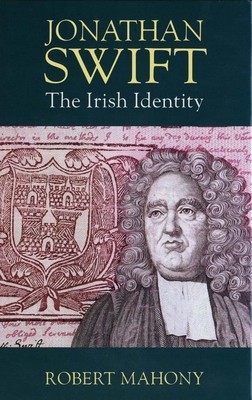
- We will send in 10–14 business days.
- Author: Robert Mahony
- Publisher: Yale University Press
- ISBN-10: 0300188390
- ISBN-13: 9780300188394
- Format: 15.6 x 23.4 x 1.3 cm, softcover
- Language: English
- SAVE -10% with code: EXTRA
Reviews
Description
Jonathan Swift was internationally acclaimed in his own time for Gulliver's Travels and other brilliant satires in verse and prose. In his native Ireland, however, he was most fervently admired as a patriot. Advocating economic self-sufficiency for Ireland and resistance to the high-handedness of the British government, Swift represented an articulate challenge to British rule. Although his reputation as an Irish patriot declined after his death, the twentieth century has come to recognize him as a founding father of Irish nationalism.
This book traces Swift's fluctuating reception in Ireland through the centuries, examining his nationalist ambivalence for a homeland he could defend but not love, and comparing his feelings with the ambiguities that have marked the development of Irish identity more widely. Robert Mahony considers Swift's posthumous reputation in both literary and popular culture and examines his unusual place in Irish political rhetoric. He shows how Swift's reputation suffered in the later eighteenth century through its seeming irrelevance to shifting political circumstances. In the early nineteenth century, Irish Protestants made him a symbol of their own patriotism within the British union, but he was ignored, or dismissed as a bigot, by most Catholic writers. In the 1840s the tide turned as the Young Ireland movement emphasized Swift's anti-British rhetoric while establishing his Protestant pedigree for contemporary Protestants. Although charges of hypocrisy and of an English cultural orientation survived as late as the 1930s, the construction of Swift as a patriot--with human flaws--was ultimately sustained.EXTRA 10 % discount with code: EXTRA
The promotion ends in 14d.19:50:28
The discount code is valid when purchasing from 10 €. Discounts do not stack.
- Author: Robert Mahony
- Publisher: Yale University Press
- ISBN-10: 0300188390
- ISBN-13: 9780300188394
- Format: 15.6 x 23.4 x 1.3 cm, softcover
- Language: English English
Jonathan Swift was internationally acclaimed in his own time for Gulliver's Travels and other brilliant satires in verse and prose. In his native Ireland, however, he was most fervently admired as a patriot. Advocating economic self-sufficiency for Ireland and resistance to the high-handedness of the British government, Swift represented an articulate challenge to British rule. Although his reputation as an Irish patriot declined after his death, the twentieth century has come to recognize him as a founding father of Irish nationalism.
This book traces Swift's fluctuating reception in Ireland through the centuries, examining his nationalist ambivalence for a homeland he could defend but not love, and comparing his feelings with the ambiguities that have marked the development of Irish identity more widely. Robert Mahony considers Swift's posthumous reputation in both literary and popular culture and examines his unusual place in Irish political rhetoric. He shows how Swift's reputation suffered in the later eighteenth century through its seeming irrelevance to shifting political circumstances. In the early nineteenth century, Irish Protestants made him a symbol of their own patriotism within the British union, but he was ignored, or dismissed as a bigot, by most Catholic writers. In the 1840s the tide turned as the Young Ireland movement emphasized Swift's anti-British rhetoric while establishing his Protestant pedigree for contemporary Protestants. Although charges of hypocrisy and of an English cultural orientation survived as late as the 1930s, the construction of Swift as a patriot--with human flaws--was ultimately sustained.

Reviews